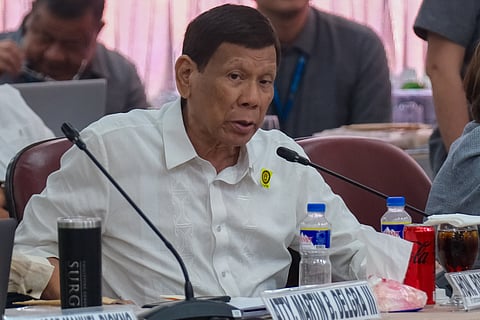
- NEWS
- the EDIT
- COMMENTARY
- BUSINESS
- LIFE
- SHOW
- ACTION
- GLOBAL GOALS
- SNAPS
- DYARYO TIRADA
- MORE

The Philippine National Police (PNP) was ordered on Tuesday to submit an inventory of more than 6,000 firearms allegedly recovered from “nanlaban” suspects, or those that resisted arrest or apprehension, during the Duterte administration’s anti-narcotics campaign.
Antipolo Rep. Romeo Acop, a former police officer, assigned this task to ascertain the veracity of their long-standing claims that drug suspects frequently resist arrest during drug operations, resulting in their deaths.
“It has been the question asked also by civilians [that] if the incidents are 6,000 plus, [there] should be 6,000 firearms because as you reasoned, they fought back, right?” Acop asked during the investigation of the House Committee on Public Order and Safety into the role of police in the war on drugs.
In 2019, the PNP reported 6,600 deaths in anti-drug operations resulting from suspect resistance. The figure, however, was four times lower than the estimated 30,000 deaths by human rights organizations.
According to PCol. Raniel Valones, 9,698 firearms related to the drug cases were under the custody of forensic groups, 8,274 were under the separate forensic group of the PNP, and 1,424 were turned over to the court or to prosecutors.
The overall tally covered Duterte’s tenure from 1 July 2016 to 30 June 2022.
Valones said that the majority of the firearms were predominantly loose or homemade firearms.
“Meaning, they were unregistered or illicitly obtained,” he told the panel.
Acop, however, was puzzled as to why the PNP maintained a larger inventory of firearms than the courts when they are considered evidence.
“When you say that they are with the forensics group, they’re not considered as pieces of evidence and they were not found in the crime scene. Is it not proper that all forearms recovered in the crime scene are considered pieces of evidence and therefore should be submitted to the courts?” Acop asked.
PNP spokesperson Police Brig. Gen. Jean Fajardo, meanwhile, countered that there were instances when courts refrained from accepting pieces evidence due to a lack of storage.
"There are courts, sir, who refused to take custody of the guns even some pieces of evidence because they don't have proper storage,” she said.
Acop, however, said that they received reports that there were orders then for the PNP to procure firearms from Danao, Cebu so that they could have different firearms, allegedly use to plant evidence.
Former president Rodrigo Duterte recently denied that he permitted police to plant evidence on the persons of drug suspects — a stark contrast to what he declared in a 2016 interview.
He did, however, admit to planting evidence and personally killing criminals during his decade-long stint as Davao City mayor.
Duterte also previously disclosed that he encouraged police to provoke drug suspects to fight back as a pretext to kill them.
Despite these admissions, Duterte insisted that police must be spared from criminal liability, saying he is the sole responsible for the massive killings of his notorious war on drugs.
